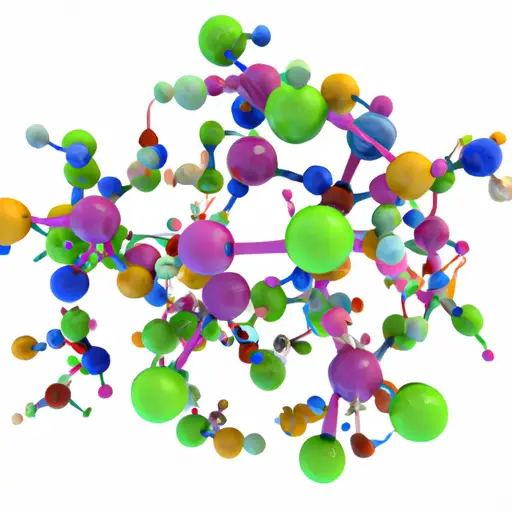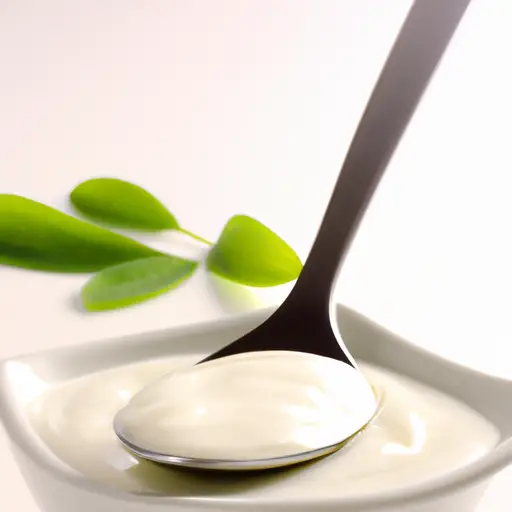The Truth About Artificial Sweeteners
Well, Hello There! Let’s Dive into Artificial Sweeteners, Shall We?
So, what exactly are artificial sweeteners, you ask? Well, my friend, they are those sneaky little substances that are used to sweeten our food and drinks without adding all those pesky extra calories. You know, the ones that make things taste oh-so-yummy without expanding our waistlines! These sweeteners are often found in sugar-free or low-calorie products, making them a go-to for those trying to cut back on their calorie intake. But hold your horses, there’s more to this story!
Benefits of Artificial Sweeteners: Sweet without the Calories!
Let me tell you, artificial sweeteners are a game-changer when it comes to cutting down on calories. Seriously, these babies are a blessing for those of us watching our waistlines. See, regular sugar packs a calorific punch, but these sweeteners? They’re as light as a feather. So, you can indulge your sweet tooth without the guilt of piling on extra pounds. It’s like having your cake and eating it too!
Now, not only do artificial sweeteners help with weight management, but they also work wonders for your oral health. You know those nasty cavities and tooth decay caused by sugar? Well, kiss those dental troubles goodbye! These sweeteners don’t leave a sticky residue that bacteria just love to munch on. So, your pearly whites stay sparkling and plaque-free. Who doesn’t want that dentist-approved smile?
Risks
Alright, folks, let’s talk about the risks of artificial sweeteners. Now, I’m not here to scare you, but it’s crucial to be aware of the potential downsides. One concern that some experts have raised is the possible link between artificial sweeteners and weight gain. Yeah, you heard me right. Contrary to what you might think, using these sweeteners could actually mess with your waistline. Some studies suggest that these sweeteners might trick your body into craving more sugary foods, which can lead to overeating and weight gain. It’s like a sneaky trap, y’know?
Another thing to consider is how artificial sweeteners can affect your blood sugar levels. Yeah, it’s not just about the calories anymore. These sweeteners might mess with your body’s ability to regulate blood sugar, which can be a real concern for folks with diabetes or those predisposed to high blood sugar. The whole point of using these sweeteners is to cut down on sugar, so it’s kind of ironic that they could potentially mess with your blood sugar, eh?
Now, you might be wondering how these artificial sweeteners are regulated. Well, let me tell you. The good news is that most countries have strict regulations in place to ensure the safety of these sweeteners. They gotta meet certain standards before they can hit the shelves. Government agencies, such as the FDA in the United States, review scientific data and conduct safety assessments to determine if these sweeteners are safe for consumption. So, there’s some level of reassurance, eh?
To sum it all up, artificial sweeteners certainly have their benefits, but there are some risks to be aware of. It’s important to exercise moderation and consider your own unique health situation when deciding whether to include these sweeteners in your diet. Keep an eye on your sugar cravings and blood sugar levels, and don’t be afraid to reach out to a healthcare professional if you have any concerns. Alright, folks, now you’re all caught up on the potential risks of artificial sweeteners. Take care of yourselves and make informed choices!
4. How Artificial Sweeteners are Regulated
So, let’s dive into how these artificial sweeteners are actually regulated. It’s a pretty fascinating topic, if you ask me! As a consumer, it’s important to know that artificial sweeteners undergo a thorough evaluation by regulatory agencies before they hit the market. These agencies, such as the Food and Drug Administration (FDA) in the United States, review extensive scientific studies to assess the safety of these sweeteners. They set acceptable daily intake limits for each artificial sweetener, which represents the maximum amount that can be safely consumed daily over a lifetime without adverse effects.
You may be wondering, “Who conducts these studies?” Well, the manufacturers of artificial sweeteners are responsible for providing the necessary research and data to regulatory agencies. However, it’s essential to note that independent bodies, like universities and research institutions, also play a crucial role in conducting their studies. These independent studies act as checks and balances to ensure the reliability and accuracy of the information provided by the manufacturers.
Now, let’s talk about the regulations for specific artificial sweeteners. Each sweetener goes through a unique evaluation process by regulatory agencies. They carefully analyze studies on various aspects such as toxicity, metabolism, and potential health effects. This evaluation is not a one-time thing. Regulatory agencies continuously monitor scientific research to stay up-to-date with any emerging concerns or new findings regarding artificial sweeteners.
It’s important to remember that regulations may differ from one country to another. Each country’s regulatory agency might have its own specific requirements and guidelines for approving and regulating artificial sweeteners. So, if you travel internationally, it’s always a good idea to familiarize yourself with the regulations of the country you’re visiting.
Overall, the regulation of artificial sweeteners is an extensive and multi-faceted process aimed at ensuring consumer safety. Regulatory agencies diligently assess the scientific evidence behind these sweeteners, working to strike a balance between allowing their use as a sugar substitute and protecting public health. Now you know a bit more about how these little packets of sweetness are overseen by the regulatory powers that be!
Conclusion
Well folks, that’s a wrap! After digging into the pros and cons of artificial sweeteners, it’s clear that they have their upsides and downsides. On the one hand, these sweet substitutes can be a godsend for folks looking to cut down on their calorie intake. They can also lend a helping hand in keeping those pearly whites shining with improved oral health. But as with anything, there are potential risks to consider. Some studies suggest a potential link between artificial sweeteners and weight gain, and others indicate that they might mess with blood sugar levels.
Now, how are these sweeteners regulated, you may be wondering? Well, fear not, as regulatory bodies like the U.S. Food and Drug Administration (FDA) keep a close eye on these products. They set safety standards and conduct thorough evaluations before giving the green light for artificial sweeteners to hit the market. So, you can rest a little easier knowing that there are checks and balances in place.
All in all, it’s clear that artificial sweeteners can be a useful tool for those striving to watch their waistlines and maintain good oral hygiene. However, it’s essential to be mindful of potential risks and moderation is key. As always, it’s best to consult with a healthcare professional if you have any concerns or questions about incorporating these sweet alternatives into your diet. Stay sweet!
FAQ on Artificial Sweeteners
What is the bad ingredient in artificial sweeteners?
Oh boy, let me tell ya, artificial sweeteners can be a real mixed bag. There’s a lot of talk about these sweet little additives, and whether they’re good or bad for ya. Now, when it comes to the “bad” ingredient in artificial sweeteners, it’s a bit tricky. You see, different sweeteners have different ingredients, so it’s not a one-size-fits-all kinda deal. However, one common culprit that gets a bad rap is aspartame. Some folks claim it ain’t good for ya and may even cause health problems, but let me tell ya, the scientific community is pretty divided on this one. Some experts say it’s perfectly safe in moderation, while others raise concerns. So, ya gotta do your own research and consult with a professional if ya have any concerns about artificial sweeteners.
What is the bitter truth about artificial sweeteners?
Well, let me tell you, the bitter truth about artificial sweeteners is that they might not be the sweet savior you were hoping for.
These sweeteners, like saccharin, aspartame, and sucralose, may satisfy your taste buds without packing on the pounds, but they come with their fair share of controversy.
According to some experts, consuming artificial sweeteners may lead to potential health risks.
For instance, numerous studies suggest a link between artificial sweeteners and weight gain, as these sneaky substances can interfere with our body’s natural ability to regulate hunger cues.
Moreover, some researchers argue that artificial sweeteners could potentially disrupt the delicate balance of our gut microbiome, which plays a crucial role in our overall health.
So, it might be best to take these sweet alternatives with a pinch of salt.
Rather than relying heavily on artificial sweeteners, it could be wise to explore more natural options like fruit, honey, or even limited amounts of regular sugar.
Remember, moderation is key, and it’s always important to consult with trusted professionals to make informed choices about what goes into our bodies.
What does artificial sweetener do to the body?
Oh boy, let me tell you about artificial sweeteners. They might seem like a dream come true for all sweet tooth junkies out there, but let me spill the truth about what they do to our bodies. Now, artificial sweeteners, like Splenda or aspartame, are pretty sneaky. They may be low in calories, but they can mess with our metabolism in some unexpected ways. See, when we consume these sweeteners, our body expects a sugar rush, but it doesn’t get it. So, it can leave us craving more sugar and, in turn, lead to overeating. But that’s not all, folks! These sweeteners have also been linked to an increased risk of developing type 2 diabetes, obesity, and even certain types of cancer. Yep, you heard that right.
Now, let’s talk about what happens when you consume artificial sweeteners. Your body goes through a confusing ride. See, our hormonal responses are all out of whack when we consume these sneaky sweeteners. They can mess with our hunger hormones, like ghrelin and leptin, which regulate our appetite. So, you might find yourself feeling hungry more often than not. Not to mention, consuming artificial sweeteners may disrupt our gut microbiota, those little helpful bacteria that live in our intestines. And trust me, a happy gut means a happy you.
Okay, enough doom and gloom! Let me share some expert advice with you. If you’re looking to satisfy your sweet tooth, there are some better alternatives out there. For starters, opt for natural sweeteners like stevia or monk fruit. They come from plants and can be a good option to satisfy your cravings without the potential negative effects of artificial sweeteners. And let’s not forget about good ol’ moderation. Yup, that’s the key. Limit your intake of sweeteners, whether artificial or natural, and focus on a balanced diet filled with wholesome foods.
So, there you have it. The truth about artificial sweeteners is not as sweet as you might have hoped. They can mess with our metabolism, lead to cravings, and have potential health risks. But fear not, my friend. With some wise choices and moderation, you can still indulge your sweet tooth without sacrificing your health. Stay smart, stay sweet, and don’t let those sneaky artificial sweeteners fool you.
what is the truth about artificial sweeteners?
Honestly, when it comes to artificial sweeteners, the truth is a bit complex. Let me break it down for you.
First and foremost, it’s important to understand that artificial sweeteners are widely used as sugar substitutes in various food and drinks. Ya know, those little packets that add a touch of sweetness without the extra calories? Yeah, those. But here’s the thing – some people swear by them while others have reservations.
Now, according to experts, artificial sweeteners can indeed help with weight management. They offer a way to satisfy those pesky sugar cravings without packing on the pounds. Plus, they don’t cause a spike in blood sugar levels like regular sugar does. So, if you’re watching your waistline or dealing with diabetes, they can be a handy tool in your arsenal.
However, it’s worth mentioning that there have been concerns raised about the long-term effects of artificial sweeteners. Some studies suggest a possible link between these sweeteners and certain health issues like cancer, obesity, and even neurological problems. But here’s the catch – these findings haven’t been consistently supported by scientific research. So, it’s a bit of a gray area, really.
Ultimately, whether or not you choose to include artificial sweeteners in your diet is a personal decision. It’s crucial to strike a balance and not solely rely on them as a means to an end. Moderation, my friend, is always key. Remember, nothing beats the natural sweetness of fruits and other wholesome foods. So, enjoy that occasional indulgence and keep things in perspective. After all, life is too short to stress too much about sweeteners, right?
So, that’s the lowdown on artificial sweeteners. Love ’em or hate ’em, it’s up to you. Use your judgment, listen to your body, and embrace a well-rounded approach to your diet. Cheers!






